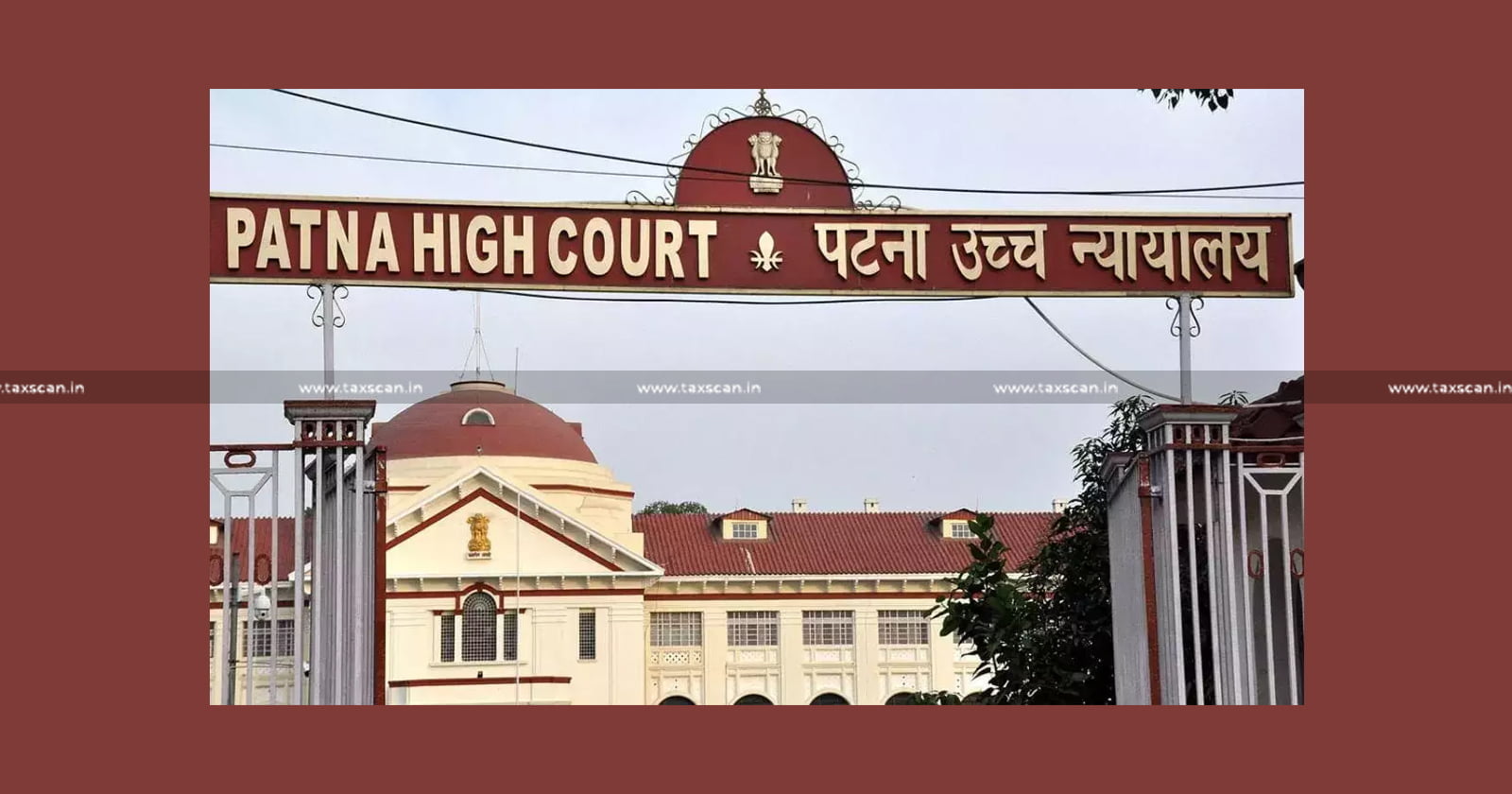Patna High Court Upholds Constitutionality of Section 16(4) of CGST Act Restricting ITC Availment [Read Order]

Patna- High- Court – Constitutionality – Section – CGST -Act – ITC -Availment-TAXSCAN
Patna- High- Court – Constitutionality – Section – CGST -Act – ITC -Availment-TAXSCAN
The High Court of Patna has upheld the constitutional validity of Section 16(4) of the Central Goods and Services Tax (CGST) Act, 2017 imposing restrictions on Input Tax Credit (ITC) claims on the observation that Articles 19(1)(g) and 300A of the Constitution of India remains intact and Fundamental Rights and Legal Consistency are safeguarded.
The decision came as a result of a batch of writ applications filed by different applicants challenging the provision’s constitutionality, which were collectively heard by the court.
Section 16(4) of the CGST Act, 2017 had faced scrutiny due to its denial of ITC for invoices or debit notes pertaining to goods or services supplied after the due date for filing returns for the month of September following the end of the financial year or the filing of the relevant annual return, whichever is earlier.
The petitioners argued that this restriction infringed upon their constitutional rights under Articles 14 and 300A of the Constitution of India.
The petitioners, represented by Mr. D.V. Pathy, contended that ITC is a vested right protected by Article 300A and it cannot be denied solely based on delayed return filings.
The petitioners proposed that Section 16(4) of the CGST Act should be interpreted to limit ITC claims only to invoices or debit notes received after the specified date.
Mr. Gautam Kumar Kejriwal, another counsel for the petitioners, argued that Section 16(4) of the CGST Act violated Article 14, as it discriminated among equals.
It was also claimed that it unreasonably restricted the right to trade and profession, violating Article 19(1)(g), and was in conflict with Article 300A and Article 13, which pertain to laws inconsistent with fundamental rights. Furthermore, he contended that disallowing ITC led to double taxation and contravened the principle of taxation on value addition.
The petitioners also argued that Section 16(4) of the CGST Act should not override the substantive conditions for availing ITC as prescribed in Section 16(1) and Section 16(2) of the Act.
They propose an alternative interpretation of Section 16(4) to limit its application only to invoices or debit notes received after the end of the financial year beyond September of the preceding financial year.
Additionally, the petitioners disputed the classification of GSTR 3B as a return under Section 39(1) of the CGST Act and claimed that Rule 61(5) of the CGST Rules, 2017, which retrospectively prescribes Form GSTR 3B as a return, is ultra vires Section 39(1) of the CGST Act.
Mr. P. K. Shahi, representing the State of Bihar, argued that ITC is a concession under the CGST Act and is subject to prescribed conditions. He cited the Supreme Court decision in ALD Automotive Private Limited vs. Commercial Tax Officer & Ors and asserted that the law applies uniformly, not violating fundamental rights.
The bench highlighted that ITC is a concession granted under the statutory scheme and the conditions for availing it must be strictly adhered to.
The court referenced the Supreme Court decision in ALD Automotive Private Limited to support this argument.
The bench emphasised that it is not a dealer’s right to receive the benefit of ITC, but rather a concession granted as per the statute.
The bench pointed to a similar case of Jayam and Company vs. Assistant Commissioner & Anr. involving Section 19(11) of the Tamil Nadu Value Added Tax Act, 2006, where the Supreme Court had upheld the constitutional validity of a provision with similar restrictions on ITC claims. The clear finding was that the said provision neither can be said to be arbitrary nor violative of the right guaranteed to a dealer under Article 19(1)(g) of the Constitution of India.
It was also emphasised that such restrictions were neither arbitrary nor violative of a dealer’s rights under Article 19(1)(g) of the Constitution of India.
The Patna High Court concluded that Section 16(4) of the CGST Act is constitutionally valid and does not violate Articles 19(1)(g) and Article 300A of the Constitution of India.
The bench asserted that the provision is consistent with all the fundamental rights guaranteed under the Constitution of India.
In result, the division bench comprising Justice Chakradhari Sharan Singh and Justice Madhuresh Prasad dismissed the writ applications challenging the constitutionality of Section 16(4) of the CGST Act without costs.
To Read the full text of the Order CLICK HERE
Support our journalism by subscribing to Taxscan premium. Follow us on Telegram for quick updates


